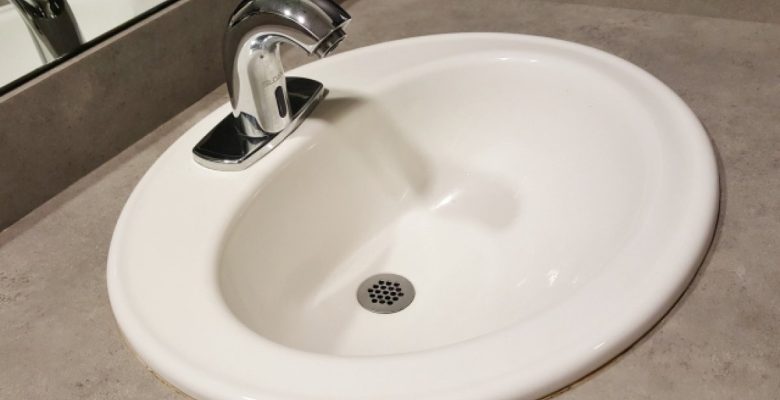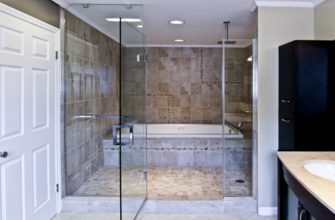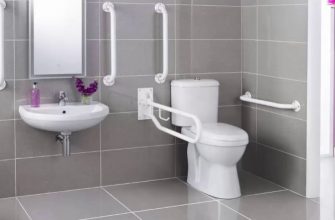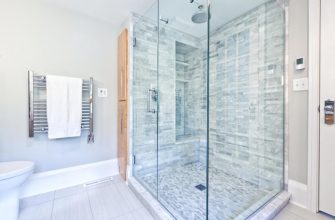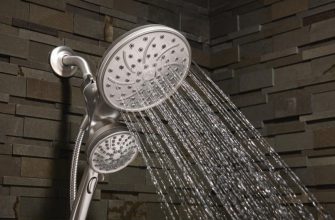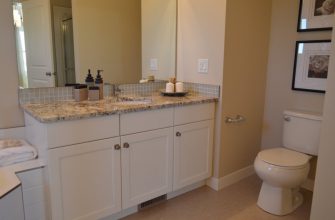Having issues with your mobile home sink can be extremely frustrating. From clogs and leaks to cracked basins and faulty faucets, sink problems can disrupt your daily routine and cause water damage if left unchecked. Thankfully, many common mobile home sink problems can be addressed with simple DIY solutions before calling in a professional.
In this comprehensive guide, we’ll cover the most prevalent mobile home sink problems and walk through both DIY and professional solutions step-by-step. You’ll learn how to identify issues, evaluate whether DIY is appropriate, and implement repairs using basic tools and materials. We’ll also provide tips on preventative maintenance to help avoid problems down the line.
Equipped with the information in this guide, you’ll be able to quickly troubleshoot problems, weigh the pros and cons of DIY vs. professional repair, and keep your mobile home sinks running smoothly for years to come.
- Common Sink Issues in Mobile Homes
- Identifying Common Sink Problems
- Leaky Sink
- Cracked Sinks
- Clogs
- Faucet Issues
- Navigating Through DIY Repair Options
- Assessing When DIY Fixes Are Appropriate
- Tools and Techniques for DIY Repairs
- Knowing When to Seek Professional Help
- Signs That Require Professional Attention
- Finding the Right Professional Assistance
- Maintenance Tips for Long-Lasting Sinks
- Preventive Measures for Sink Issues
- Regular Maintenance Practices
- Final Thoughts on Maintaining Mobile Home Sink Efficiency
Common Sink Issues in Mobile Homes
- Mobile home sinks endure a lot of wear and tear. From frequent use washing dishes and preparing meals to exposure to greases, soaps, and other residues, common issues inevitably crop up over time.. Here are some of the most common sink problems in mobile homes:
- Clogged Drain: A clogged drain is a common issue in any sink. It can be caused by food particles, grease buildup, or foreign objects getting stuck in the pipes. Signs of a clogged drain include slow drainage, gurgling sounds, or water backing up into the sink.
- Leaky Faucet: A leaky faucet can waste a significant amount of water and cause water damage if not fixed promptly. The most common causes of a leaky faucet are worn-out seals, damaged O-rings, or a faulty cartridge.
- Cracked Basin: Mobile home sinks can develop cracks over time due to age, impact, or improper use. A cracked basin not only affects the aesthetics but can also lead to leaks and further damage if not repaired.
- Loose Faucet: If your faucet feels wobbly or moves around when you turn it on or off, it is likely due to loose mounting nuts or a worn-out faucet base. A loose faucet can cause water to leak under the sink and damage the surrounding area.
- Low Water Pressure: Low water pressure can make it difficult to effectively clean dishes or wash your hands. It can be caused by mineral buildup in the aerator or clogged pipes.
Identifying Common Sink Problems
Leaky Sink
A leaky sink is one of the most common issues in any home. With mobile homes, vibration from people walking around and wind outside can loosen up connections over time. Leaks typically occur at the drain pipe, supply lines, or around the faucet base.
A small drip may not seem like an emergency, but even minor leaks should be addressed quickly. The constant dripping can rot wood cabinets or warp particle board over time. Left unchecked, leaks can lead to mold growth, damage to surrounding materials, and high water bills.
Cracked Sinks
Cracks and chips in porcelain, stainless steel, or enamel sinks can occur from impact damage or excessive strain over time. Cracks allow water to seep underneath and can lead to the issues mentioned previously.
Small hairline cracks may seem harmless at first. But they tend to expand over time under the stress of continued use. Addressing cracks early on with DIY epoxy patches can save you from a much bigger headache later.
Clogs
As with any sink, clogs can occur in mobile home sinks over time. Mobile homes often rely on smaller diameter pipes compared to houses. So even small amounts of accumulation from food, grease, hair and other debris can impede water drainage.
Clogs that are left untreated lead to backed up water, foul odors, and standing water that provides a breeding ground for bacteria. Thankfully, many common clogs can be cleared with some simple hardware store drain cleaners before calling a plumber.
Faucet Issues
Given the frequent use kitchen and bathroom sinks endure, it’s no surprise faucet breakdowns are common. Mineral deposits can build up on aerators and moving valve components, impeding function over time. Connections can also loosen up, causing annoying drips.
Replacing faucet washers, cartridges, and hoses is well within the DIY realm. And upgrading to a higher-quality faucet can prevent issues going forward.
Navigating Through DIY Repair Options
Assessing When DIY Fixes Are Appropriate
While professional sink repair may seem daunting and expensive, many common mobile home sink problems can be addressed with simple DIY solutions.
Generally speaking, straightforward fixes like tightening connections, clearing clogs, replacing washers, and patching cracks are reasonable DIY projects for a mobile home owner willing to put in some elbow grease.
Attempting more complex repairs on your own plumbing system carries risks if you don’t know what you’re doing. But basic sink fixes are fairly low risk, even for novices. And DIY repair can save you a chunk of change versus calling a plumber.
Tools and Techniques for DIY Repairs
In most cases, you don’t need fancy tools or special skills to repair a leaky mobile home sink:
- A basic set of hand tools like adjustable pliers, screwdrivers, and wrenches will allow you to tighten fittings and replace common wear-and-tear components like hoses, washers, and P-traps.
- A wire coat hanger can be straightened out to fish debris from many basic clogs.
- Plumber’s putty, Teflon tape, and adjustable wrenches allow you to remove, re-seat, and reseal stubborn leaky drain pipes or supply lines.
- Epoxy patching kits available at any hardware store can mend small cracks and chips in porcelain, enamel, or stainless steel sinks.
For stuck-on gunk, grease, and serious clogs, consider investing $20 or so in an enzymatic drain cleaner or mechanical drain snake. Using the proper tools and methods the first time saves frustration and prevent damage down the line.
If any DIY fix requires shutting off main water lines or disconnecting supply lines, make sure to relieve pressure by opening taps first. And have some towels or a bucket handy to catch drips.
Knowing When to Seek Professional Help
While many basic mobile home sink fixes fall within the DIY realm, there are certain issues that require a professional plumber to prevent bigger problems down the line.
Signs That Require Professional Attention
Here are a few clear indicators it’s best to call in a pro:
- Major leaks: If you have anything beyond a minor drip, a professional plumber has the tools and expertise to locate the source of the leak and prevent water damage.
- No hot water: If you have no hot water coming from any faucets, the issue likely lies with your hot water heater, requiring professional diagnosis and repair.
- Low water flow/pressure: Poor flow and pressure could indicate calcification, rust, or other buildup in supply lines. Or point to issues with your main water line. Attempting to clear these issues on your own risks damaging pipes.
- Persistent clogs: If you’ve tried snaking the drain and using store-bought drain cleaners with no success, a professional may need to disassemble piping to locate and clear a serious clog.
- Faulty garbage disposal: If the motor or internal components of your garbage disposal fails, hire a plumber avoid electrical hazards or damage from improper disassembly.
Finding the Right Professional Assistance
When it’s time to call in a pro, find one with expertise on mobile homes specifically. Key things to look for include:
- Solid reviews and recommendations from other mobile home owners.
- Availability for emergency calls.
- Competitive pricing and clear estimates before work begins.
A reputable mobile home plumber can assess whether DIY fixes attempted previously require re-doing portions of the job. They have the skills to remedy issues at their root cause – not just slap a bandage on problems.
While seemingly pricey upfront, professional mobile home sink repair prevents much costlier water damage repairs down the line if problems persist and expand.
Maintenance Tips for Long-Lasting Sinks
An ounce of prevention is worth a pound of cure when it comes to home maintenance. Keeping up with basic care for your mobile home sinks helps avoid many pesky (and costly) problems in the future.
Preventive Measures for Sink Issues
Here are some simple preventive measures to keep sinks running smoothly:
- Use sink strainers in kitchen sinks to catch food scraps and debris before they go down the drain.
- Wipe down sinks after each use to prevent mineral deposits and grease buildup over time.
- Run hot water for a few minutes once per week to clear soap scum and dissolved greases from drain lines.
- Consider applying plumbers putty around sink drain baskets to prevent leaks.
- Insulate hot and cold water supply lines where accessible to prevent freezing and bursts during cold weather.
Regular Maintenance Practices
Make the following quick maintenance practices part of your regular routine:
- Snake drains: Use a hand-crank auger every month to clear debris before clogs form.
- Clean aerators: Soak and rinse faucet aerators every few months to maintain water pressure and prevent mineral buildup.
- Inspect under sinks: Check underside areas monthly for any signs of water and tighten connections as needed.
- Update worn parts: Replace old sink hoses, washers, P-traps and supply valves every few years or at first signs of trouble.
Putting just a few minutes each month into basic sink maintenance goes a long way towards preventing headaches from urgent plumbing repairs down the line!
Final Thoughts on Maintaining Mobile Home Sink Efficiency
Dealing with a problematic mobile home sink can be disruptive and costly if left unaddressed. But in many cases, common issues like clogs, leaks, and part failures can be tackled successfully through DIY methods.
Knowing when to attempt repairs yourself versus calling in a professional prevents small issues from becoming big headaches. And staying on top of basic maintenance keeps problems from arising in the first place.
We hope this guide gives you newfound confidence to handle mobile home sink issues quickly, affordably, and effectively. And remember to call in backup when plumbing problems exceed your comfort zone or abilities.
Here’s to smooth sailing ahead for your mobile home sinks. Bon voyage!

